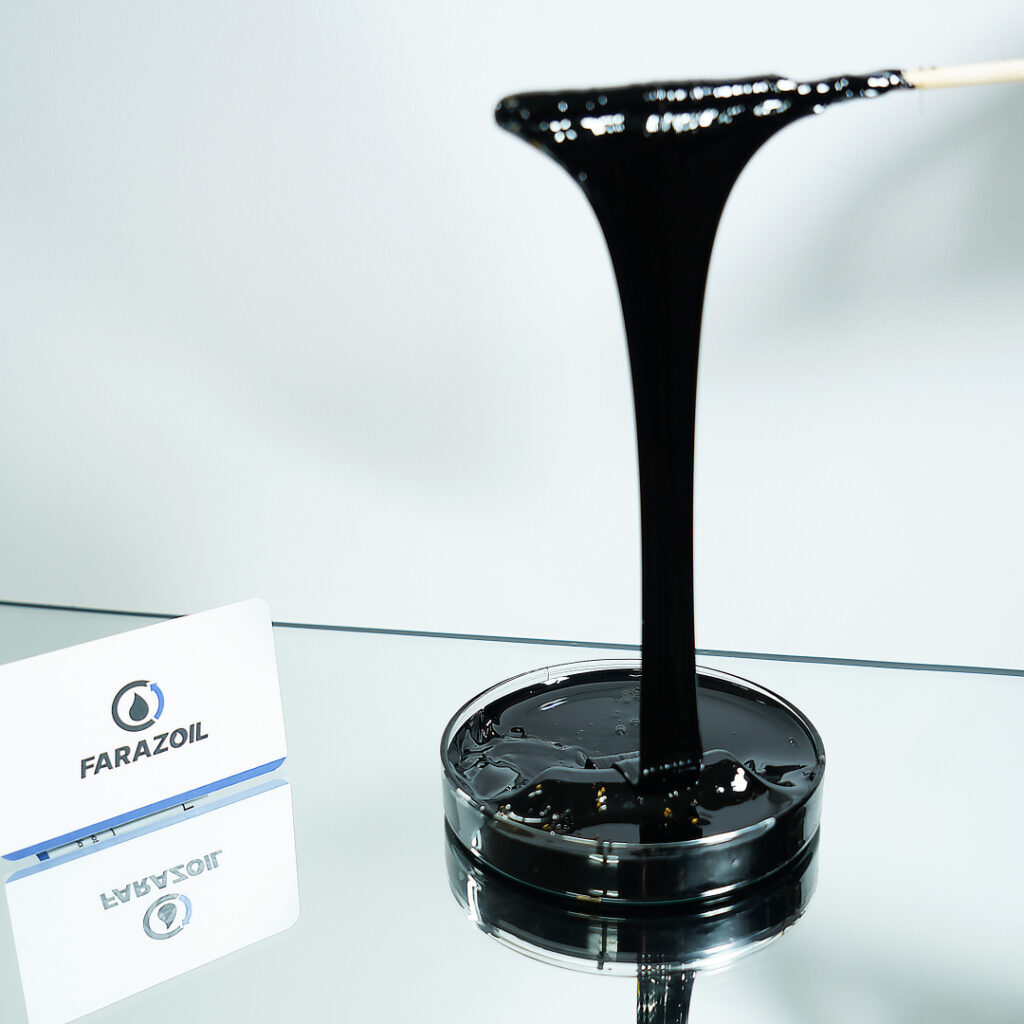Bitumen VG40
Bitumen VG-40 is a type of paving bitumen commonly used in road construction and asphalt mixtures. It falls under the viscosity grade system, which classifies bitumen based on their viscosity at a specific temperature. In the case of VG-40, the number “40” indicates its viscosity in deci Pascal seconds (dPa·s) at 60°C.

| Characteristics | Unit | VG 30 | Test Method |
| Absolute Viscosity @ 60 °C, Poises | °C | Min.2400 | IS 1206 (Part 2) |
| Kinematic Viscosity @ 135 °C | cSt | Min.350 | IS 1206 (Part 3) |
| Softening Point (R&B) | °C | Min.47 | IS 1205 |
| Flash Point (Cleveland Open Cup). | °C | Min.220 | IS 1209 |
| Solubility in trichloroethylene. | % | Min.99 | IS 1206 |
| Penetration @ 25 °C (100 grams, 5 seconds) | 0.1 | 50-70 | IS 1203 |
| mm | |||
| Test on residue from thin film oven tests/RTFOT | |||
| i) Viscosity ratio @ 60 °C | °C | Max. 4.0 | IS 1206 (Part 2) |
| ii) Ductility @ 25 °C, (Thin film oven test). | Cm | Min.40 | IS 1208 |
| Specification Gravity @ 27/27 | °C | Min.0.99 | IS 1202 |
| Conforms to BIS (IS 73:2006) Specifications | |||
Properties
Bitumen VG-40 possesses specific characteristics that make it suitable for various road construction applications. Its higher viscosity compared to lower-grade bitumen signifies greater resistance to deformation at high temperatures, making it ideal for use in regions with warm climates. This property helps prevent rutting, which is the formation of grooves in the asphalt surface due to repeated traffic loads and high temperatures.
Properties of asphalt made by bitumen VG-40
The use of bitumen VG-40 contributes to the overall performance of asphalt pavements. It helps create roads with enhanced stability, reduced deformation, and improved resistance to cracking. These qualities are particularly advantageous in heavy-traffic areas and regions prone to extreme temperature fluctuations.
Factors affecting asphalt production
When constructing asphalt mixtures with bitumen VG-40, it is crucial to consider the mix design, which involves determining the optimal proportion of aggregates and bitumen to achieve the desired performance characteristics. This process takes into account factors such as traffic load, climate, and pavement thickness to ensure the longevity of the road.
High viscosity properties in storage
In addition to its mechanical properties, bitumen VG-40 also offers certain advantages during the construction process. Its higher viscosity allows for better storage stability and lower susceptibility to drainage during transportation and storage, reducing the need for frequent reheating and ensuring consistent quality.
High viscosity properties in construction
However, bitumen VG-40 does have some limitations. Due to its higher viscosity, it may require higher mixing and compaction temperatures during construction, which can increase energy consumption and greenhouse gas emissions. Therefore, it’s essential to strike a balance between the performance benefits of bitumen VG-40 and the environmental impacts of its production and application.
Conclusion
In conclusion, bitumen VG-40 is a valuable material in road construction due to its superior properties that contribute to the durability and performance of asphalt pavements. Its higher viscosity and excellent adhesion make it well-suited for use in regions with warm climates and heavy traffic. Careful consideration of mix design and construction practices is essential to harness the benefits of bitumen VG-40 while minimizing its environmental footprint.
Packaging
- Bulk
- New Steel Drum
- 1 MT Jumbo Bag
- 300 kg Bitubag
- Bitutainer
Specification | 150kg bitumen drum | 180kg bitumen drum | 200kg bitumen drum |
|---|---|---|---|
Height (mm) | 860 | 980 | 980 |
Diameter (mm) | 500 | 500 | 500 |
Body Thickness (mm) | 0.6 | 0.6 | 0.6 |
Top/Base thickness (mm) | 0.6 | 0.6 | 0.6 |
Net weight +/- 2.5 (kg) | 150 | 182 | 210 |
Gross weight +/- 2.5 (kg) | 158 | 192 | 220 |
Empty drum weight +/-1 (kg) | 8.5 | 9.5 | 10 |
